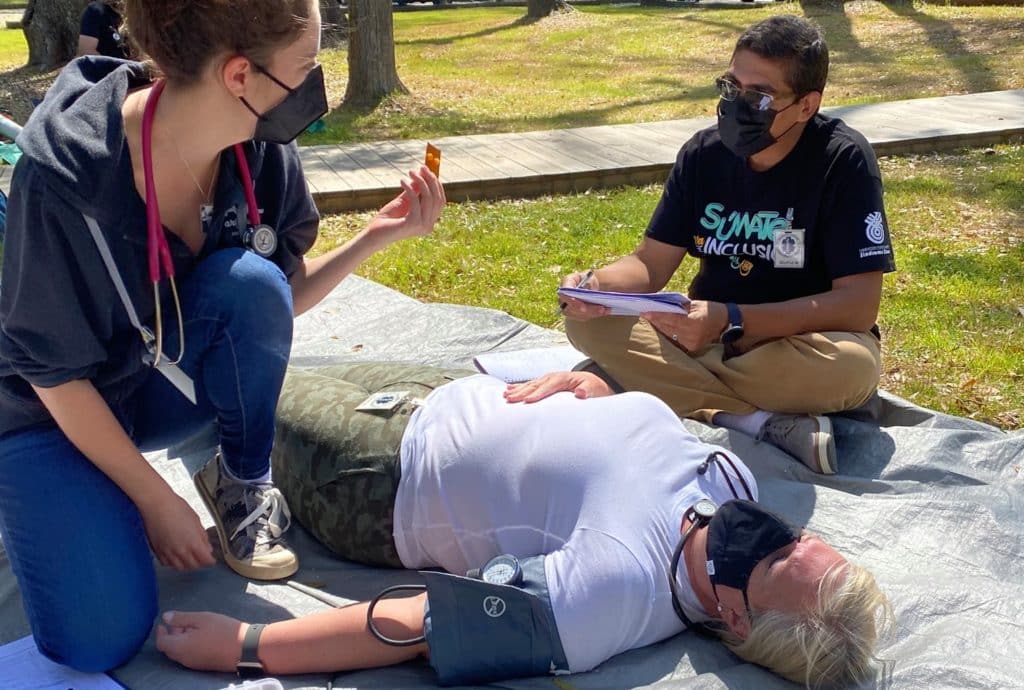Intensive is one of those words that, when you say it out loud or write it down, sounds foreboding or, as the word itself suggests, promotes a feeling of tenseness. However, when we talk about completing an intensive EMT training course here at The National Center for Outdoor & Adventure Education (NCOAE), the word is not meant to scare you off.
Instead, it’s intent is to communicate the level of dedication you’re capable of putting into such a program, given the brief timeframe allotted for the program. And by brief, consider this: You can complete a high school EMT program in about a year. A university college course typically takes about six months to complete, and a community college course normally takes a semester.
However, to complete an intensive EMT course, such as those offered here at NCOAE, the work can be completed in just 21 days. That’s three short weeks. Boom! Done! Let me take the National Registry of Emergency Medical Technicians (NREMT) exam!
Benefits of the Intensive Approach to EMT Training
Know this: With an intensive program, you’re going to learn everything you need to know to take and pass the NREMT exam, and you’re going to learn it quickly. Just be prepared to take in a lot of information in a short amount of time. Here are a few of the advantages of intensive learning:
- Students thrive best when they can commit themselves fully to one thing. If you take the initiative and keep up with a fast-paced schedule, you’ll do just fine.
- With an intensive program, all those freshly learned skills and knowledge will be top of mind when you take your state and national EMT exams.
- And, if you attend a good program like those offered at NCOAE, you’re going to get just as many clinical hours as you would in a drawn-out program. Our students receive 48 hours of clinical experience.
Who Should Take an Intensive EMT Training Course?
You might be surprised to learn who signs up for these intensive EMT programs and why. The most obvious, of course, are those of you who are thinking about switching careers and becoming an EMT. Others interested in EMT training are those planning to get into medical school. And finally, there are those who desire an EMT license to enhance their career.
For career switchers, maybe you want to leap straight into a new experience. You already know what you enjoy — and don’t enjoy — about work, but maybe you have the notion that you’ll do well in emergency medicine. And with our 21-day program, you’ll discover quickly if you’re right.
For future med school students who are currently enrolled in bachelor’s or master’s programs, you know you have less time to dedicate to an EMT certificate. But with our intensive approach, training can be completed between semesters or during a 21-day stretch over the summer. As a bonus, what you learn will give you a leg up on your fellow med school students once your med school cohort is set. And you’ll enter med school with a ton of patient care hours under your belt – which can only help in your quest to get into the med school of your choice.
For more about the benefits of EMT training prior to med school, read our post Thinking About Going to Med School? Start with EMT Training and Certification.
If you’re thinking of using an EMT license to enhance your resume and experience, you should know that in many cities, firefighters working with EMTs are often required to get an EMT certification. And police officers are often the first on the scene, which means having EMT skills can make a huge impact on critical care.
Then there are those who often find themselves in situations where having emergency medical skills is a must. Maybe you’re in wilderness a lot, or you live off grid, or you’re responsible for ensuring the safety of others in the backcountry. In those cases, EMT training and certification just makes sense.
Dedicate A Few Weeks of Your Life to Help Saves The Lives of Others
We hope this post convinces you that dedicating a few weeks of your life to train to become a certified EMT is worthwhile. and that the intensive approach makes sense. However, there are a few things you should research before signing up for anyone’s program — including ours.
For example, avoid EMT training programs with the following characteristics:
- They don’t account for you working directly with patients
- They aren’t approved by the state in which the training occurs
- They fail to meet the standards of the state you live in
- Clinical hours are not included as part of your training
- They hire instructors with no documented EMS experience
For more information about intensive EMT training options, visit our Emergency Medicine Education page and watch the NCOAE Hybrid ‘Intensive’ EMT Course video on our videos page.
TALK TO US
Have any further questions about our courses, what you’ll learn, or what else to expect? Contact us, we’re here to help!

Leave a comment